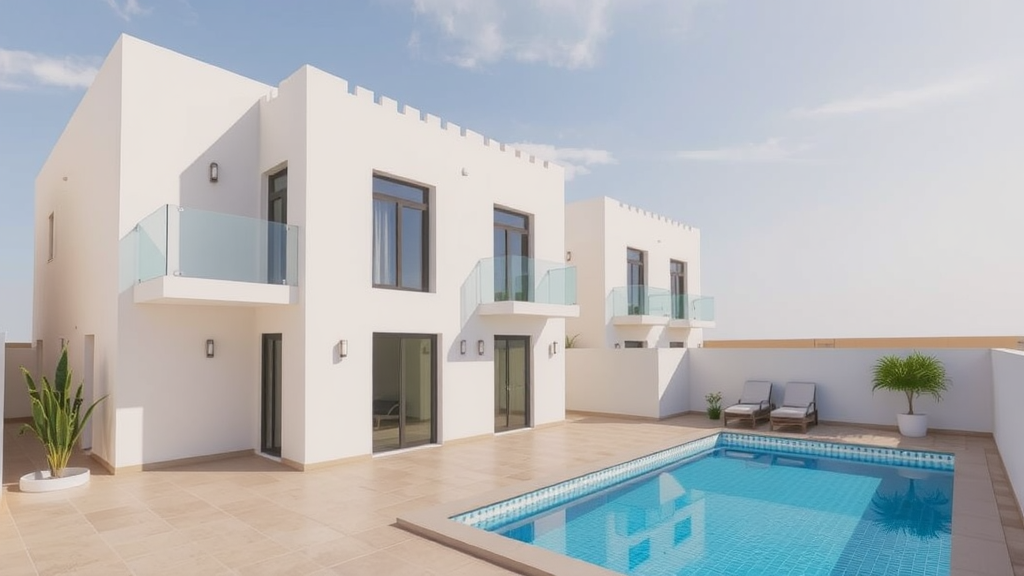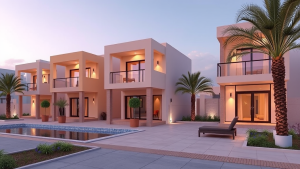Comparing cultural diversity: the expat community of Hurghada versus the multicultural cities of belgium
The cultural tapestry of Hurghada’s expat community contrasts sharply with the multicultural environment found in Belgium’s vibrant cities. Both locations attract individuals from diverse backgrounds, yet their social dynamics and cultural expressions present unique experiences. Understanding these differences allows for an appreciation of what each community offers.
Hurghada, a popular resort town on the Red Sea, is home to a growing expat population primarily drawn by the sunny climate and relaxed lifestyle. Expatriates in Hurghada come from various countries, including Russia, the UK, and Germany, creating a blend of cultures. This mix fosters a community where new traditions emerge from the melting pot of global influences.
In Hurghada, you will find:
- Leisurely Lifestyle: Expats often choose Hurghada for its slow-paced living. This relaxed environment allows for casual interactions, making it easier for newcomers to mingle and form friendships.
- Community Events: Expat communities organize events like beach parties and cultural fairs. These activities encourage socialization among different nationalities, providing a sense of belonging.
- Integration into Local Life: Many expats engage with Egyptian culture by learning Arabic, participating in local festivals, and exploring culinary traditions. This immersion enriches their experience and fosters respect for the host culture.
In contrast, Belgium’s cities such as Brussels, Antwerp, and Ghent are renowned for their rich cultural diversity, with a long history of immigration. The contemporary demographic landscape features a significant population of expatriates and migrants from Africa, the Middle East, and Asia. This long-standing multiculturalism shapes the urban culture and day-to-day life in these cities.
In Belgian cities, you’ll notice:
- Established Communities: Unlike the relatively new expat presence in Hurghada, Belgium boasts established communities with roots going back generations. These groups bring a profound influence on the local culture and lifestyle.
- Diverse Language Use: Belgium is unique in that it has three official languages: Dutch, French, and German. This complexity reflects its diverse populace and showcases how language plays a crucial role in cultural identity.
- Vibrant Cultural Scene: Belgian cities are known for their theaters, festivals, and art galleries celebrating cultural diversity. Expats can find communities focused on specific national heritages, making it easy to connect with others from similar backgrounds.
While Hurghada’s expat community thrives on a laid-back lifestyle, Belgium’s cities pulsate with dynamic cultural exchanges. The social fabric in Belgium is often more deeply interwoven, given its long history of multicultural coexistence compared to the relatively nascent expat scene in Hurghada.
Another aspect to consider is the culinary diversity in both regions. In Hurghada, the influx of different nationalities has led to a delightful culinary scene where food from various countries coexists. You can find Italian pizzerias next to traditional Egyptian cafes, showcasing a fusion of flavors. Belgian cuisine, famous for its chocolates, waffles, and fries, also reflects a mix of influences from its diverse population. Additionally, various ethnic eateries serve dishes representing the rich culinary heritage of its migrant communities.
In terms of social integration, the approach can vary greatly. Expats in Hurghada often find themselves more secluded due to the resort-style living, where interactions may be limited to the tourist population. In contrast, living in Belgian cities places expats in a more multicultural environment, encouraging daily interactions with locals and other nationalities. This can lead to a more profound understanding and appreciation of various cultures.
Indeed, both locations offer rich experiences shaped uniquely by their expat communities and inherent cultural diversity. While Hurghada provides a serene escape with emerging cultural interactions, the multicultural cities of Belgium boast a more established and vibrant cultural landscape. Whether you are looking for relaxation by the beach or the energy of urban life, each destination offers distinct benefits and challenges that cater to a variety of lifestyles and preferences.
The impact of cultural diversity on social integration and community life in Hurghada and belgium
Cultural diversity plays a vital role in shaping the social fabric of communities around the world. In places like Hurghada, Egypt, and cities in Belgium, this diversity influences how residents interact, integrate, and coexist. Each location presents unique characteristics that enrich community life and foster social integration.
Hurghada, a popular tourist destination on the Red Sea, boasts a vibrant expat community. Expats from various countries, including European nations, Russia, and Arab states, gather here. The blending of cultures introduces new traditions, foods, and social norms that create a rich tapestry of community life. This cultural mixing results in several significant impacts on social integration:
- Shared Spaces: The presence of cafes, restaurants, and markets that reflect a range of international influences enhances the communal atmosphere. Residents enjoy trying different cuisines and celebrating various holidays together, fostering relationships among locals and foreigners.
- Language Exchange: With multiple nationalities present, there’s a natural exchange of languages. This not only helps individuals communicate better but also instills greater appreciation for each other’s backgrounds.
- Collaborative Events: Cultural events hosted in Hurghada, such as music festivals or art exhibitions, often feature international contributors. These gatherings not only entertain but also provide platforms for networking and building friendships.
However, the integration process in Hurghada is not without challenges. Some locals may feel unsure about how to engage with foreigners, leading to potential misunderstandings. Ensuring respect for each culture’s traditions and values can help bridge these gaps. Encouraging community participation through educational programs can promote deeper awareness and understanding among residents.
Belgium, known for its multilingual society and historical significance, showcases another facet of cultural diversity. The country’s cities, such as Brussels, Antwerp, and Ghent, are melting pots of various cultures. The impacts of cultural diversity here can significantly enhance community life and social integration:
- Inclusive Policies: Belgium’s government actively promotes inclusivity through policies that encourage multiculturalism. From local councils to schools, there are initiatives aimed at creating a harmonious society where everyone feels valued.
- Public Celebrations: Belgian cities host numerous festivals celebrating their diverse population. These events, including Carnaval and multicultural fairs, bring communities together, allowing residents to share and experience each other’s traditions.
- Educational Opportunities: Many educational institutions in Belgium focus on teaching students about different cultures. This approach instills a sense of belonging and respect among young people, fostering a more interconnected future.
Despite the positive aspects of cultural diversity, Belgium faces its own set of challenges. Language barriers can sometimes hinder effective communication, especially in a country where multiple official languages thrive. Additionally, some communities may experience tension due to differing viewpoints or cultural misunderstandings. Implementing dialogue platforms where community members can express concerns and share experiences can lead to healing and integration.
The key takeaway is that cultural diversity can be a double-edged sword. In both Hurghada and Belgium, the influx of different cultures enriches community life while also presenting integration challenges. Promoting open communication, mutual respect, and active participation from all community members is essential in navigating these complexities. By harnessing the benefits of diversity and working through the challenges, both locations can foster environments where every individual feels at home.
The impact of cultural diversity on social integration and community life is profound. Hurghada’s expat community, with its vibrant exchanges and collaborative events, contrasts with Belgium’s structured approach and inclusive policies. Nevertheless, both places highlight the need for continuous efforts towards understanding and collaboration, paving the way for a more united and harmonious society.
The exploration of cultural diversity in Hurghada’s expat community versus the multicultural cities of Belgium reveals a rich tapestry of experiences shaped by different environments. Hurghada, with its vibrant blend of expatriates from various countries, cultivates a unique social landscape, fostering connections through shared interests and experiences, while the picturesque Belgian cities, known for their diverse demographics, offer a melting pot of cultures where locals and newcomers alike can learn from one another.
In Hurghada, cultural diversity often translates into a strong sense of camaraderie among expats, which can lead to enriching community events that celebrate their varied heritages. Even though the city is primarily known for tourism, the feeling of belonging is palpable among residents who bond over their expatriate identities. Social integration here tends to revolve around activities and gatherings, making it a lively hub for individuals seeking to find their place away from home.
Conversely, Belgium’s multicultural urban environments present a broader complexity. The cities are teeming with a mosaic of cultures, and the impact of this diversity is evident in the everyday interactions among neighbors. While integration may pose challenges, it also invites opportunities for mutual understanding and dialogue across cultural boundaries. Community life in cities like Brussels and Antwerp thrives on the exchange of ideas, traditions, and languages, contributing to a rich societal fabric.
Ultimately, both settings illustrate that cultural diversity significantly influences social integration and community connection, albeit in distinctive ways. Whether through the tight-knit bonds of an expat enclave in Hurghada or the intricate intermingling of cultures in Belgium, the celebration of diversity enhances the human experience, creating spaces rich in understanding and cooperation.










